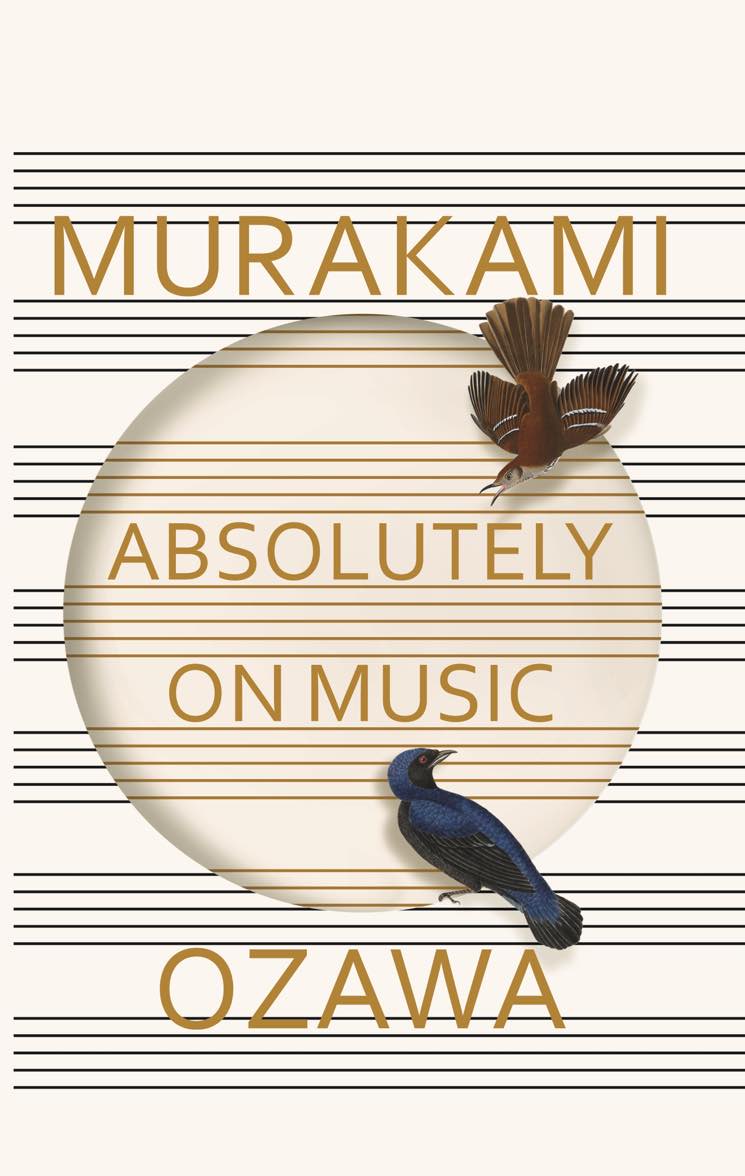Though literary purists may shudder at the fact, hiring a ghostwriter is no rarity. And it makes sense, to a certain degree: for all the renown one receives as an expert in their field, it can be meaningless if they can't communicate their ideas to anyone on the outside. And for someone like Japanese conductor Seiji Ozawa — whose health is waning in old age — hiring one to chronicle his extensive, storied career would come as no surprise.
Thankfully, he chose a more unorthodox path, instead teaming up with literary phenom (and friend) Haruki Murakami for Absolutely on Music, a series of transcribed conversations. As he did with running in his own memoir, 2007's What I Talk About When I Talk About Running, Murakami uses Ozama's area of expertise and deep interest as a launchpad for more existential musings — but due to the script-like format of the transcribed conversations, the act of the ghostwriter's research becomes the main focus as the reader becomes a fly on the wall, observing a conversation about classical music but also a deeper, more compelling one about mastery and experience.
Though his self-effacing comments claim otherwise, Murakami is no layman, either. An accomplished novelist, he arrives well prepared and extensively researched for his chats with Ozawa (before he became a writer, Murakami owned a jazz bar, and still owns a sizable record collection). But Murakami possesses a knack for remaining accessible despite his deep knowledge of a wide breadth of topics, and acts as a steady hand as Ozawa reflects on a lengthy career while also serving as an equal in conversation — his sense of conversational rhythm keeps the book engaging, but his keen ear for unconventional yet still-cohesive narratives provides a compelling unorthodoxy.
The book is at its most interesting when Murakami oversteps his role as moderator and becomes a vulnerable participant himself; his own experiences and perspectives are tied to Ozawa's, and ultimately serve to push at the barriers of what it means to be an expert. Their candid and frank discussions of the relationship between passion and jealousy, the struggles of deferring to and assuming authority and experiencing impostor syndrome (even after achieving critical success) provide refreshing perspective on human beings' universal anxieties — ones that are forgotten when we deify our influences and inspirations.
Absolutely on Music sheds great insight on the world of classical music but, through the laser-specific lens of classical music in a contemporary context, Murakami and Ozawa delve into the universal feelings of jealousy, authority, mastery and passion. In doing so, the duo strip away notions of an expert/layman divide to reveal the relatable humans beneath the accolades.
(Alfred A. Knopf)Thankfully, he chose a more unorthodox path, instead teaming up with literary phenom (and friend) Haruki Murakami for Absolutely on Music, a series of transcribed conversations. As he did with running in his own memoir, 2007's What I Talk About When I Talk About Running, Murakami uses Ozama's area of expertise and deep interest as a launchpad for more existential musings — but due to the script-like format of the transcribed conversations, the act of the ghostwriter's research becomes the main focus as the reader becomes a fly on the wall, observing a conversation about classical music but also a deeper, more compelling one about mastery and experience.
Though his self-effacing comments claim otherwise, Murakami is no layman, either. An accomplished novelist, he arrives well prepared and extensively researched for his chats with Ozawa (before he became a writer, Murakami owned a jazz bar, and still owns a sizable record collection). But Murakami possesses a knack for remaining accessible despite his deep knowledge of a wide breadth of topics, and acts as a steady hand as Ozawa reflects on a lengthy career while also serving as an equal in conversation — his sense of conversational rhythm keeps the book engaging, but his keen ear for unconventional yet still-cohesive narratives provides a compelling unorthodoxy.
The book is at its most interesting when Murakami oversteps his role as moderator and becomes a vulnerable participant himself; his own experiences and perspectives are tied to Ozawa's, and ultimately serve to push at the barriers of what it means to be an expert. Their candid and frank discussions of the relationship between passion and jealousy, the struggles of deferring to and assuming authority and experiencing impostor syndrome (even after achieving critical success) provide refreshing perspective on human beings' universal anxieties — ones that are forgotten when we deify our influences and inspirations.
Absolutely on Music sheds great insight on the world of classical music but, through the laser-specific lens of classical music in a contemporary context, Murakami and Ozawa delve into the universal feelings of jealousy, authority, mastery and passion. In doing so, the duo strip away notions of an expert/layman divide to reveal the relatable humans beneath the accolades.
